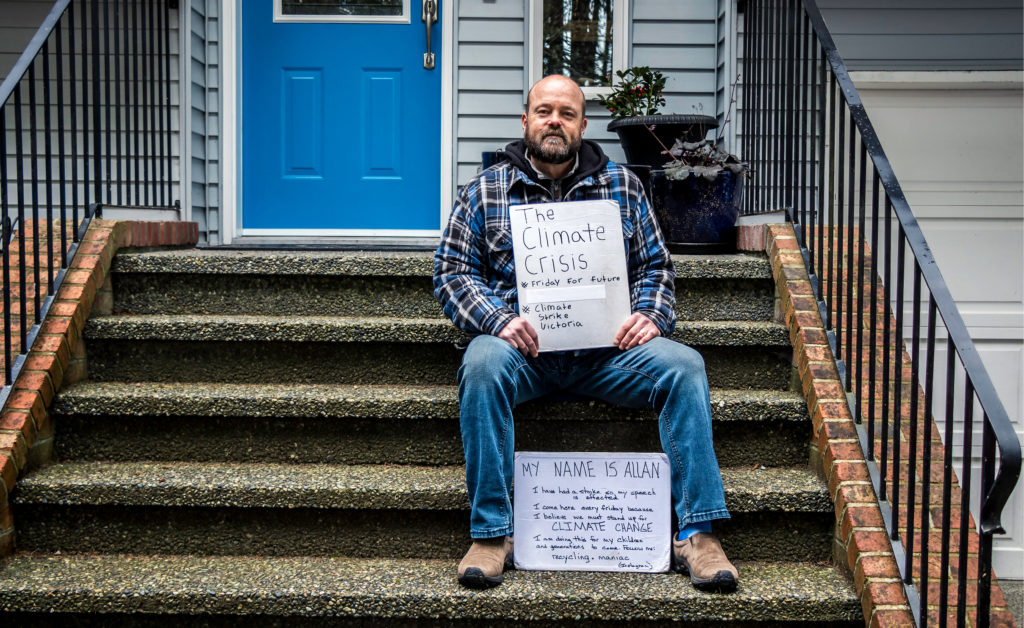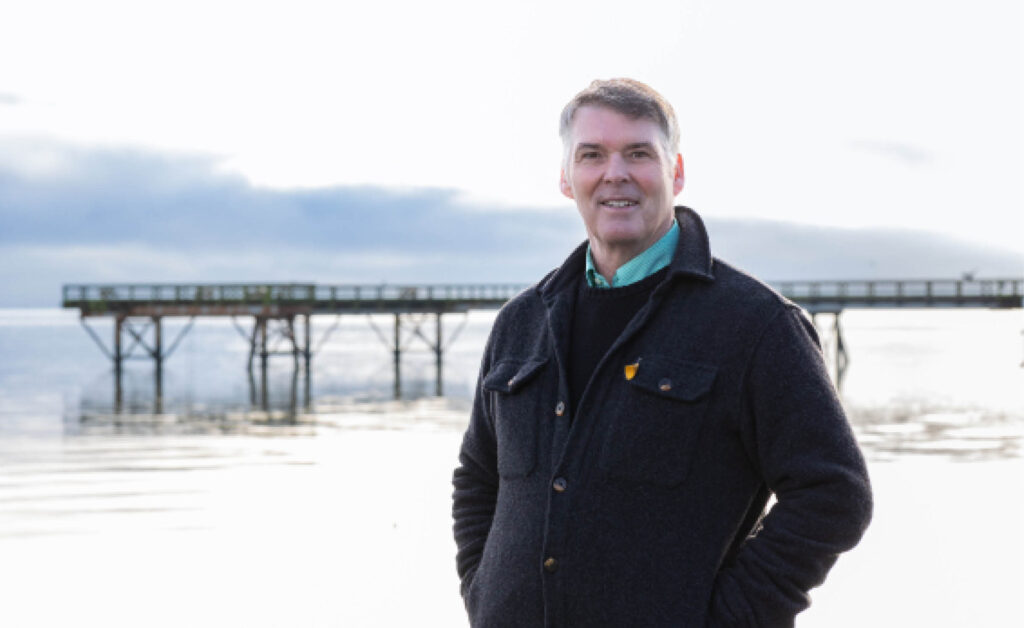by Anne Miller –
Allan Wittur has been an avid environmentalist for decades and is clearly aware of the climate crisis we’re now facing. He transformed the stance of a company he acquired from one of excessive waste to one that is now recycling conscious. It was a grave personal experience, though, that brought the term “crisis” to his doorstep. Two years ago, Allan suffered a massive stroke which left him comatose and paralyzed, offering little hope of major recovery. Incredibly, he beat the odds with a remarkable recuperation, and is now a stroke survivor.
He reminds us that mindset is everything. Faced with a crisis, whether personal or environmental, we have choices. We can give up, ignore the truths or gather up our resources and do something. Allan is doing something. His passion for cleaning up our environment shows in his unwavering efforts.
To begin with, he presents himself on the grounds of Parliament every Friday between 11 a.m. and 1 p.m. to get the word out about addressing environmental damage. There, aided by large signs and like-minded friends, he meets several people from around the world who stop to chat or give a thumbs up. He knows the importance of keeping the conversation going.
One clever strategy for teaching the message that we’re facing environmental crisis is his use of social media. Through his Facebook and Instagram accounts (recycling.maniac), Allan presents several aspects of environmentalism and posts images to support his messages.
Allan has the keen support of his wife, Melanie, in firing up his passion. While aware of environmental neglect before she met him, Melanie did not share Allan’s level of passion. She, like many of us, faced the cognitive dissonance that pitted price or convenience against the chore of changing our habits. Allan’s keen dedication and enthusiasm influenced her greatly. “I drank the Kool-Aid,” she said and now, together, they walk the talk. They avoid plastics whenever they can, buy in bulk, buy directly from their local butcher who packages their meat in waxed paper, buy food in glass containers and swap plastic wrapping for gauze produce bags. They go a step further, too, by making a point of telling store managers and manufacturers that they will not buy their food in plastics or non-recyclable packaging. They know the power of corporations in promoting the plastics/petroleum industries but, also, their vulnerability at the bottom line. Thus, by influencing numbers of people to speak up, they hope to make the corporations listen.
Finally, along with his work on the grounds of Parliament, using social media and practising what he preaches, Allan, literally, puts his boots on the ground by cleaning up garbage wherever he sees it. He regularly cleans up litter in the neighbourhood around his home because he knows he’s making a difference. Not only are the grounds clean but he has influenced at least one young man to bring his friends to do the same.
Allan is doing this not only for the world, but for his son, his potential grandchildren and great-grandchildren. Watch for him at Parliament and at the North Saanich Farm Market, another venue for reaching people and for influencing the farmers there to stop using plastic bags.
He knows he’s often preaching to the choir but, as he continues passing on the message, that choir becomes bigger and bigger. Each choir has its own circle of influence and so, the message grows. Passion and commitment. That’s Allan’s approach, all the while endorsing Margaret Mead’s message that one should “never doubt that a small group of thoughtful, committed, citizens can change the world. Indeed, it is the only thing that ever has.”
Photo by Amanda Cribdon Photography




